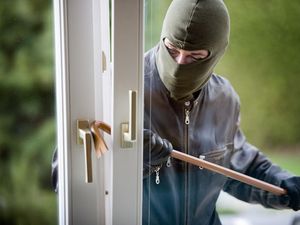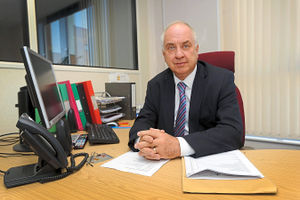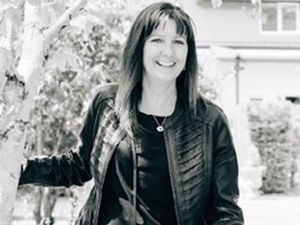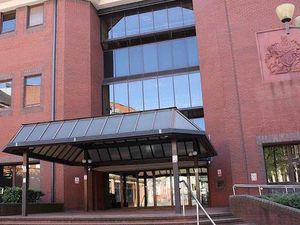Just one in 14 crimes lead to charges in West Midlands
Fewer than one in 14 crimes reported to West Midlands Police result in someone appearing before a court, new figures reveal.

In neighbouring Staffordshire fewer than one in 12 crimes reported to the county's police force result in a courtt appearance.
The latest data from the Home Office shows that suspects in the West Midlands are far less likely to be charged or issued with a summons than they were five years ago.
Just seven per cent of crimes reported to the West Midlands force resulted in a charge or summons in the year to March.
This meant someone was charged or ordered to be in court on 17,644 occasions over the year – 5,264 fewer than during the previous 12 months.
The rate is just over half what it was in the year to March 2015, when 17 per cent of crimes resulted in a suspect being brought to justice.
More:
In Staffordshire suspects are less than half as likely to be charged or issued with a summons than they were five years ago.
The figures show that just eight per cent of crimes reported to the force resulted in a charge or summons in the year to March.
This meant someone was charged or ordered to be in court on 6,633 occasions over the year, 1,954 fewer than the previous 12 months.
The rate is less than half what it was in the year to March 2015, when 17 per cent of crimes resulted in a suspect being brought to justice.
The numbers match national figures, where the proportion of crimes resulting in a charge or summons also dropped from 17 to seven per cent over the same period. A similar trend is also seen within West Mercia Police.
Undermined
West Midlands Police and Crime Commissioner David Jamieson said the figures reflected a decade of cuts to funding.
“Over the past 10 years West Midlands Police’s budget has been cut by £175 million, resulting in the loss of around a quarter of our officers," he said.
"This has undermined our efforts to tackle many crimes.
“The cuts imposed by the Government have had a severe impact on the force with officers expected to do far more with significantly fewer resources."

Mr Jamieson said while the Government last year committed to recruiting an extra 20,000 officers across the country, this would only replace around half of the officers lost.
The figures showed that 54 per cent of cases in the West Midlands force area were closed as a result of no suspect being identified.
A further 21 per cent of cases were dropped because the victim did not support further action. This figure is slightly below the England and Wales average of 24 per cent, a record high and more than double the 2014/15 figure of 10 per cent.
Det Ch Supt Jav Oomer of Staffordshire Police, said he was aware of the fall in charging rates, which reflected the picture across England and Wales.
“This is partly down to the investigation of more complex crimes and increasing demand," he said.
"Changes to crime recording mean we now record more crimes which may have little realistic prospect of conviction.
“There are a number of other options outside of the traditional approach which Staffordshire Police has led on such as out of court disposal for cases and restorative justice, when appropriate.
“We have also worked hard to target proactive and persistent criminals and this year we have confiscated the highest amount of money from criminals for five years.”
Recruitment
A spokeswoman for the Crown Prosecution Service in the West Midlands said the figures were part of a long-term trend, reflecting a decrease in cases referred by the police.
“The CPS does not investigate crime, or choose which cases to consider," she said.
“We expect that the ongoing recruitment of 20,000 more police officers will lead to an increase in cases coming into the criminal justice system.
“The CPS is using an additional £85 million in funding to recruit almost 500 new staff including prosecutors, paralegals and caseworkers to manage this work.”
Yvette Cooper, chairman of the Home Affairs select committee, said the figures were extremely concerning.
She said: “How can public confidence in the criminal justice system be sustained if fewer crimes are being dealt with and solved each year?"
Miss Cooper said the committee had repeatedly warned that this was a consequence of forces being overstretched for several years.
The Home Office said it was the responsibility of chief constables and police and crime commissioners to make sure criminal cases are investigated properly.
The likelihood of a crime resulting in a charge could vary by how severe or complex the cases is, or how difficult it is to identify a suspect, a spokeswoman said.
She added that the lower charge rates were likely to be the result of more crimes being recorded by police and forces taking on more complex cases which could take longer to resolve.
Marc Jones, performance lead at the Association of Police and Crime Commissioners, said that overall the figures show a "worryingly steady decline" in the number of suspects being charged or summoned.
"People need to have confidence in policing and the criminal justice system and PCCs, as locally elected criminal justice leaders, will continue to drive a more accountable system anchored in the needs of our communities," he added.





